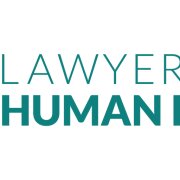Best Civil Rights Lawyers in Johannesburg
Share your needs with us, get contacted by law firms.
Free. Takes 2 min.
List of the best lawyers in Johannesburg, South Africa
About Civil Rights Law in Johannesburg, South Africa
Civil rights law in Johannesburg, South Africa, centers around the protection of individual freedoms and equality as guaranteed by the Constitution of South Africa. The cornerstone of civil rights is the Bill of Rights, enshrined in Chapter 2 of the Constitution, which affords fundamental human rights to all citizens. These rights cover various areas, including equality, human dignity, freedom of expression, and protection against discrimination. Johannesburg, as a bustling metropolis, is a melting pot of diversity, making the enforcement of civil rights crucial in addressing issues such as housing, education, public services, and employment. Lawyers specializing in civil rights in Johannesburg engage in advocacy, litigation, and education to ensure these rights are upheld.
Why You May Need a Lawyer
There are numerous situations where individuals in Johannesburg might seek the assistance of a civil rights lawyer:
1. **Discrimination:** If you face discrimination in employment, housing, education, or public services based on race, gender, age, religion, or disability, a civil rights lawyer can help protect your interests.
2. **Police Misconduct:** Victims of unlawful detention, harassment, or excessive force by law enforcement may require legal representation to pursue justice.
3. **Housing and Evictions:** Challenges concerning unfair evictions or discrimination in housing services may necessitate legal intervention.
4. **Access to Public Services:** Issues concerning denial or unequal access to government programs or facilities can require legal action to address violations.
5. **Freedom of Expression and Assembly:** Legal assistance may be needed if rights to free speech or peaceful assembly are infringed upon.
Local Laws Overview
The legal framework in Johannesburg relevant to civil rights is primarily shaped by South Africa's constitution, which emphasizes equality and prohibits discrimination. The Promotion of Equality and Prevention of Unfair Discrimination Act (PEPUDA) seeks to further enforce these principles. Moreover, the Employment Equity Act and the Labour Relations Act work in tandem to ensure workplace fairness and guard against discrimination. Johannesburg, being the country's largest city, adheres to local governmental laws and policies that aim to reflect national standards of equality and human rights in its communities.
Frequently Asked Questions
What are some recognized civil rights in South Africa?
The South African Bill of Rights recognizes various civil rights, including the right to equality, dignity, freedom of expression, freedom of association, and protection against discrimination.
How can I report discrimination in Johannesburg?
Incidents of discrimination can be reported to the South African Human Rights Commission (SAHRC) or the Equality Courts located within Johannesburg.
What should I do if I experience police misconduct?
If you encounter police misconduct, document the details, and file a complaint with the Independent Police Investigative Directorate (IPID). Consulting with a civil rights lawyer can also guide you on legal proceedings.
Can I file a case for unfair dismissal based on discrimination?
Yes, if you believe your dismissal was based on discriminatory grounds, you can file a case with the Commission for Conciliation, Mediation, and Arbitration (CCMA) or seek legal assistance to understand your rights and options.
What is the role of the Equality Court?
The Equality Court handles cases related to discrimination, hate speech, and harassment. It aims to provide legal recourse for individuals experiencing violations of equality and dignity.
Are there specific protections for people with disabilities?
Yes, South African law, through the Employment Equity Act and other legislations, ensures reasonable accommodation and prohibits discrimination against people with disabilities in various sectors.
How can I challenge a wrongful eviction?
If you face a wrongful eviction, you can approach the courts or consult a civil rights lawyer to seek remedial actions and protect your housing rights.
What resources are available for refugee and migrant rights?
Organizations like Lawyers for Human Rights provide legal support and advocacy for refugees and migrants in Johannesburg, ensuring their rights are respected under local and international law.
Can I protest legally in Johannesburg?
Yes, but it requires compliance with the Regulation of Gatherings Act, including notifying local authorities. Legal advice can ensure that protests adhere to lawful procedures.
How do I know if my civil rights have been violated?
A civil rights lawyer can assess your situation and advise whether a violation has occurred, based on current legal standards and protections in Johannesburg.
Additional Resources
For further assistance, the following resources can be valuable:
- **South African Human Rights Commission (SAHRC):** An independent body dedicated to promoting, protecting, and monitoring human rights in the country.
- **Equality Courts:** Facilities within the judicial system that specifically handle cases related to equality and non-discrimination.
- **Independent Police Investigative Directorate (IPID):** A body tasked with investigating complaints of police misconduct.
- **Lawyers for Human Rights:** A non-governmental organization providing legal services to ensure the protection of human rights for all residents.
Next Steps
If you believe you need legal assistance for a civil rights issue in Johannesburg, consider the following actions:
1. **Document Everything:** Keep detailed records and documentation related to your case. This can include emails, photographs, witness statements, and any official communications.
2. **Consult a Lawyer:** Seek legal advice to understand your rights and options. A qualified civil rights lawyer can offer guidance and representation.
3. **File a Formal Complaint:** If applicable, file a complaint with the relevant regulatory body, such as the IPID for police misconduct or the SAHRC for discrimination.
4. **Engage with Support Groups:** Connect with local advocacy groups or organizations that specialize in civil rights issues for guidance and support.
5. **Stay Informed:** Educate yourself on your rights under South African law to better navigate your circumstances and engage effectively with legal professionals.
Lawzana helps you find the best lawyers and law firms in Johannesburg through a curated and pre-screened list of qualified legal professionals. Our platform offers rankings and detailed profiles of attorneys and law firms, allowing you to compare based on practice areas, including Civil Rights, experience, and client feedback.
Each profile includes a description of the firm's areas of practice, client reviews, team members and partners, year of establishment, spoken languages, office locations, contact information, social media presence, and any published articles or resources. Most firms on our platform speak English and are experienced in both local and international legal matters.
Get a quote from top-rated law firms in Johannesburg, South Africa — quickly, securely, and without unnecessary hassle.
Disclaimer:
The information provided on this page is for general informational purposes only and does not constitute legal advice. While we strive to ensure the accuracy and relevance of the content, legal information may change over time, and interpretations of the law can vary. You should always consult with a qualified legal professional for advice specific to your situation.
We disclaim all liability for actions taken or not taken based on the content of this page. If you believe any information is incorrect or outdated, please contact us, and we will review and update it where appropriate.
















